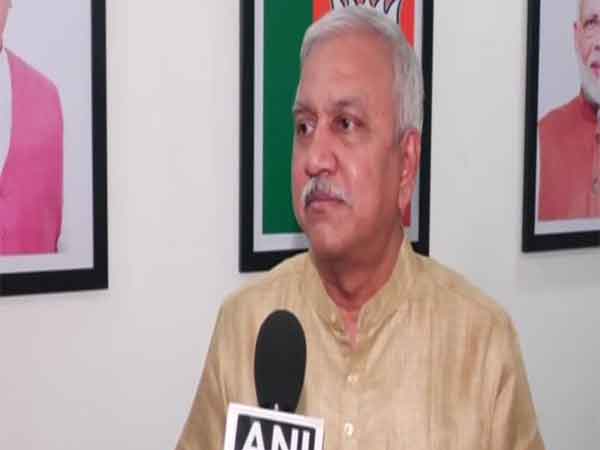Movement for Bangla language gave us Independence from Pakistan, says Bangladesh PM on imposition of Urdu
Sep 05, 2022

Dhaka [Bangladesh], September 5 : Bangladesh Prime Minister Sheikh Hasina while expressing her love for her mother tongue Bangla, said it was the large-scale language movement that gave Bangladesh its Independence from Pakistan five decades back.
"When Pakistan was formed, Urdu language was imposed upon us. A language movement started across our country and we gained Independence through that movement," she told ANI in an interaction ahead of her four-day visit to India.
On being asked how important is Bangla for the people who speak the language as Bangladesh is the only country which was formed because of the language, she replied language is really very important for any community.
"So far (in this interview) I was speaking in English language and I couldn't speak that well as it is a foreign language to me. I may have several things on my mind that I could not express. Language is really very important for any community," she said referring to the initial part of the interaction with ANI where she spoke in English.
"Bangladesh's origin began with language and the country has only one language...The attraction toward our own language is something special as the mother tongue helps us speak our minds. It helps you to work for your country, so it is very crucial."
Answering another question on whether it is pride and love for mother tongue Bangla and not rejection for other languages, the prime minister said: "Yes exactly. It's pride and love for mother language. We don't oppose any languages but at the same time we encourage people to learn other languages such as English, Farsi, Arabic, French or for that matter any others."
"World is now interconnected as people are moving from place to place for various purposes, including for work. So learning new languages help in communicating with others."
In addition, the prime minister mentioned learning new languages has its own happiness and joy.
Further, she was asked whether it is a disadvantage when people from Bangladesh go to foreign countries and feel they cannot speak English properly because they learnt only their mother tongue Bangla. In response, she candidly said Bengalis typically learn languages very quickly.
"They learn and speak English. But they do not speak that fluently as it is not their mother tongue... I don't speak English that well but those who learn the language speak well. Many Bangladeshi people living in other countries learnt languages spoken in that country."
Lastly, she was asked whether language creates a special rapport and in which language does she speak when in West Bengal in India and meet Chief Minister Mamata Banerjee and others.
She smilingly said, "Yes, we speak in Bangla."
In a quick follow up question, she was asked does the language bind even though there may be different political differences-- say for instance on Teesta water, to which the Bangladesh prime minister said: "Problems may remain but the friendship should continue."
"Yes for sure. Impending issues may be at hand, but that doesn't mean the friendship will weaken. Problems may remain but the friendship should continue," the prime minister added.
For the record, Prime Minister Sheikh Hasina will arrive on a four-day visit to India later today.
Issues on top of the agenda are upgrading defence cooperation, expanding regional connectivity initiatives and establishing stability in South Asia. All eyes are set on Hasina's first visit since the COVID-19 pandemic began. The two sides are expected to ink an agreement on interim sharing of water of the Kushiyara River during Hasina's visit.
During her visit, the Bangladesh Prime Minister will meet President Droupadi Murmu and Vice President Jagdeep Dhankhar. She will also hold a bilateral meeting with Prime Minister Narendra Modi.
External Affairs Minister S Jaishankar will call on PM Hasina during her visit to New Delhi. Hasina is also likely to visit Ajmer Sharif Dargah of revered Sufi saint Moinuddin Chishti in Rajasthan.
This visit will be her first visit after both nations' bilateral relations touched their 50th year in 2021.
Last year also marked the 50th anniversary of Bangladesh's independence and the 100th birth anniversary of Sheikh Mujibur Rahman, the founding father of Bangladesh.
Bangladesh is an important partner under India's "Neighbourhood First" policy and the two nations have strong people-to-people and cultural ties.



















